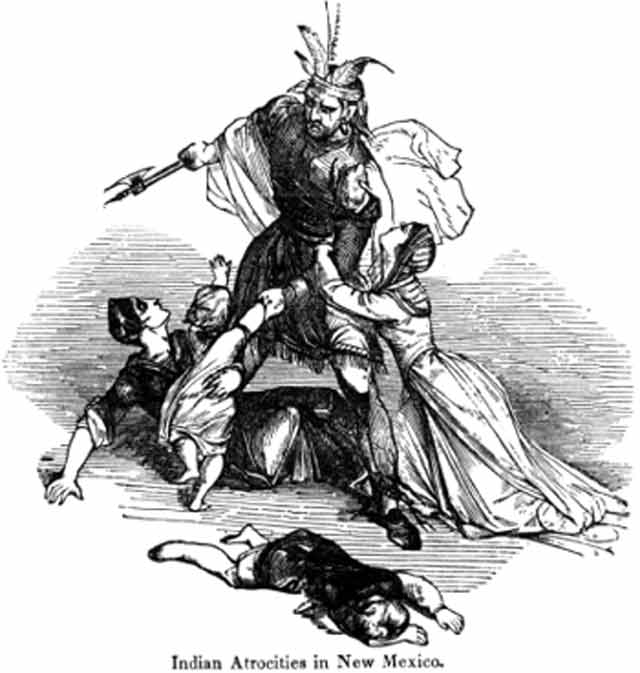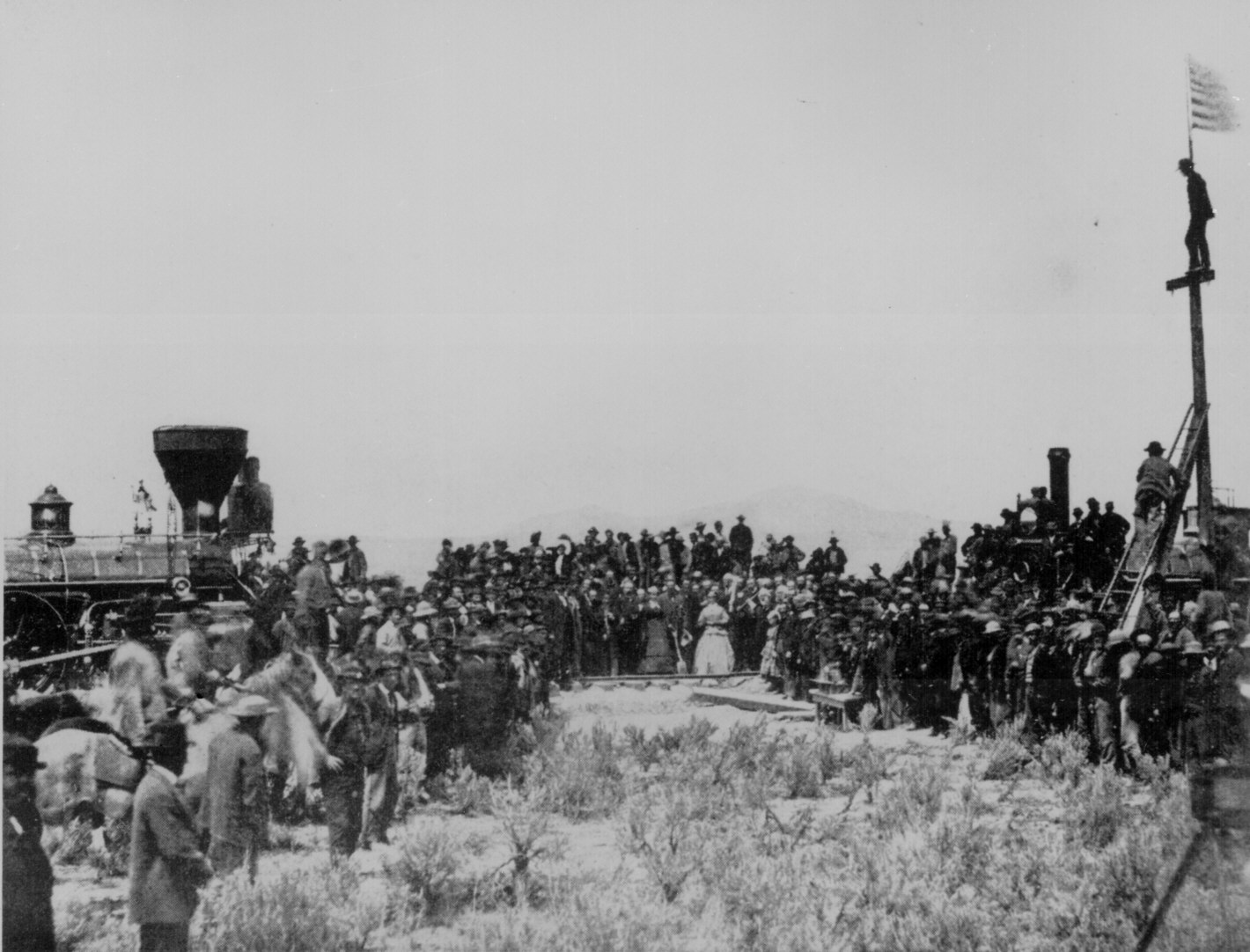|

"Indian Atrocities in New Mexico." From
John Frost,
Pictorial
History of Mexico and the Mexican War
(Philadelphia, Pa., 1848). Image
used to illustrate
Brian Delay, "Independent Indians and the U.S.-Mexican
War", American Historical Review 112:1 (2007): 35-68.
Courtesy American Historical Review.
|
Questions to
consider
1.
Why was it possible to resolve the crisis over the admission of Missouri?
2. How
serious a threat to the Union was the Nullification controversy?
3. Why did the Mexican War re-open sectional disputes?
4.
Why
did the compromise of 1850 not settle the sectional dispute?
5. How strong was anti-slavery sentiment in northern politics in this
period?
6. Assess the significance of the fugitive slave issue in the sectional
controversy?
7. Why did a) non-slaveholding southerners and b) northerners care
about whether slavery was extended or not?
Primary Sources
President Jackson's Proclamation on Nullfication (1832)
Daniel Webster, Second Reply to Hayne (1830)
President Polk, speech calling for a Declaration of War against Mexico
(1846)
Andrew
Jackson advocates Indian Removal
Thomas
Hart Benton on white supremacy,
1846
John L. O'Sullivan, "The Great Nation of Futurity", Democratic Review,
1839.
Abraham Lincoln, Speech at Peoria, Illinois 1854
Albert Bierstadt, 'The Wolf River, Kansas', 1859
Introductory
reading
Gary J. Kornblith, "The Coming of the Civil War: A Counterfactual
Exercise," Journal of American History 90:1 (2003):
76-105
Bruce Levine, Half Slave and Half free, ch. 7-9
James MacPherson, Battle Cry of Freedom (1988), chapters 1-3.
Futher
reading
Donald Robinson, Slavery in the Structure of American Politics, 1765-1820,
(1971)
Mathew Mason, Slavery and politics in the early American republic (2006)
Brian
Delay, "Independent Indians and the U.S.-Mexican War", American
Historical Review 112:1 (2007): 35-68
Major
L. Wilson, "Liberty and Union": An Analysis
of Three Concepts Involved in the Nullification Controversy, Journal
of Southern History 33:3 (1967): 331-355
William J. Cooper, 'The Territorial Issue', ch 10 in Liberty and
Slavery: Southern Politics to 1860 (1982)
William W. Freehling, Prelude
to Civil War: the nullification controversy in South Carolina, 1816-1836, (1966) esp. pp. 253-286.
John McCardell, The Idea of a Southern Nation: Southern Nationalists
and Southern Nationalism, 1830-1860 (1979)
Michael A. Morrison, Slavery and the American West : The Eclipse
of Manifest Destiny and the Coming of the Civil War (1999)
William L. Anderson, Cherokee Removal (1991), esp. essay by Ronald
Satz (pp. 29-54)
Kathleen Konzen, "A Saga of Families," in The Oxford History of
the American West, Milner, O'Connor, Sandweiss, eds.
Richard White, 'It's your misfortune and none of my own': a history of the
American West (1991)
Anders Stephanson, Manifest Destiny: American Expansion and the Empire of
Right (1995)
Thomas R. Hietala, Manifest Design: Anxious Aggrandizement in Late Jacksonian
America (1985)
Roger
H. Brown, "Who Bungled the War of 1812?", Reviews in
American History, 19: 2 (1991): 183-187
Julie Roy Jeffrey, Frontier Women: 'Civilising' the West? 1840-1880
Websites
Compromise
of 1850 exhibition at the Library of Congress
|
